When your horse is your best friend, it doesn't take you long to notice when something isn't quite right. You've spent so many hours in the saddle and at the barn that you feel in tune with what she needs and when she needs it. The relationship you share is something to be proud of, but even the best of friends sometimes miss the most subtle signs.
Nutrient deficiency is something every horse owner needs to be aware of. Even if you've been feeding your horse the same diet for years, their changing health could lead to issues you never expected. In most cases, nutrient deficiency in horses presents itself through a number of symptoms. It can take weeks, and even months, to pin down exactly what's going on. Recognizing these key signs of nutrient deficiency in horses could save your horse from serious health issues.
1. Lack of Appetite
It's true some horses are picky eaters, but you should be able to tell the difference between a refined palette and a lack of appetite.
There are countless reasons why a horse might suddenly experience a decrease in appetite. It could be anything from stress to a dental issue. In terms of nutrient deficiency in horses, however, a decreased appetite is most likely due to a salt deficiency. Even if you have a salt block available for your horse, that doesn't mean she's actually using it. If your salt block hasn't changed size, and you haven't actually seen your horse licking it, it's probably time to up the ante. Try adding salt directly to your horse's feed. You could also try a Himalayan salt block.
2. Sudden or Gradual Weight Loss
A sudden drop in your horse's weight will likely be easy to notice, but it's the gradual weight loss you have to watch out for. You aren't likely to notice when your horse loses a pound here and two pounds there. But assuming your horse isn't overweight, any amount of gradual weight loss is a cause for concern. It's also one of the first signs of nutrient deficiency in horses.
This often happens when the seasons change and horses are no longer cooped up for the winter. With the warm weather, they're free to run and explore more than they were when they were snowed in. This means they're using more energy, but without an increase in food, they're not getting the calories they need to sustain their increased activity. Weight loss is also common in senior horses who have trouble chewing and fully digesting their food. Talk to your vet about increasing your horse's calorie count. You can also add coconut oil to her regular diet to sneak in a few extra calories.
3. Minimal Hoof Growth
On average, an unshod horse needs her hooves trimmed every 4-6 weeks. Most horse owners have standing appointments with their favorite farrier to make sure their horses never experience the painful consequences of overgrown hooves. But what if the farrier comes and your horse's hooves barely need trimmed? This is most likely due to a protein deficiency.
Horse hooves are made of a tough protein called keratin. When the horse doesn't get enough protein in her diet, she can't produce the keratin her hooves need. If your horse's hooves aren't growing like they used to, talk to your vet about adding an amino acid supplement to her diet.
4. Slow-Healing Wounds
It's normal for a horse to occasionally have a few cuts and scrapes. It depends on their activity level and what type of activity they're doing, but typically, a scrape or two isn't anything to worry about. The problem comes in when those small scrapes and cuts take weeks or even months to heal. It depends on the size and depth of the cut, but most small wounds heal in 1-2 weeks. If it's taking longer than that, your horse might have a vitamin C deficiency.
Horses under a lot of stress and senior horses are most at risk of vitamin C deficiency, but it can happen to any horse. You'll need to talk to your vet about the best ways to supplement your horse's diet and add more vitamin C to her life.
5. Tummy Troubles
A single bout of diarrhea is no reason to panic, but if your horse has had diarrhea for several days or on and off for several weeks, she could have a vitamin B1 deficiency. Also known as thiamin, vitamin B1 is responsible for the metabolism of carbs, protein, and fat.
The easiest way to solve this problem is to give your horse more time grazing. Low quality feed might also be to blame, and you could help your horse by investing in more high-quality hay. There are also thiamin supplements available when extra grazing time isn't an option.
6. Faded and Dry Coat
A dull coat that feels brittle to the touch could be a sign of an iodine deficiency in your horse. Be careful, however, because iodine deficiency and iodine excess cause the same symptoms. Having either too little or too much iodine will be bad for your horse, and it's up to you to make sure she receives the right amount.
According to Understanding Horse Nutrition, most horses get their iodine from iodized salt. But if your horse isn't a fan of the salt lick, there's a good chance she's not getting all the iodine she needs. A good option is to find a manufactured feed with adequate levels of iodine and add it to your horse's diet. As her iodine levels go up, you should eventually notice an improvement in her coat.
Horse Courses by Elaine Heney
- Listening to the Horse - The Documentary by Elaine Heney & Grey Pony Films
- Shoulder In & Out Training for better balance, bend & topline development with your horse
- Over 110+ Polework Exercises & Challenges to Download
- Dancing at Liberty & Creating Connection with Your Horse (11 lessons) - Grey Pony Films
Nutrient deficiency in horses can start with subtle symptoms, but if left too long, it can lead to more serious health issues. If you suspect your horse is experiencing some kind of deficiency, it's important to talk to your vet. These are only a few of the signs of nutrient deficiency in horses, and you'll need to discuses symptoms and supplements with a professional to get your horse back to her best health.

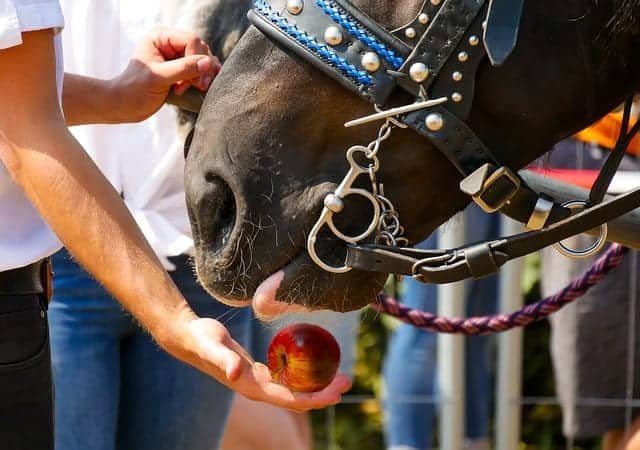
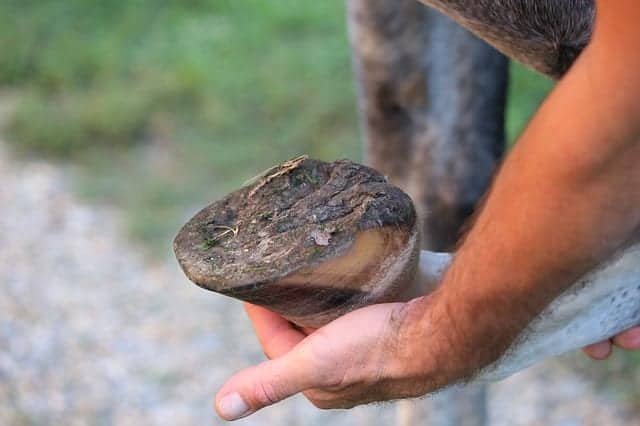
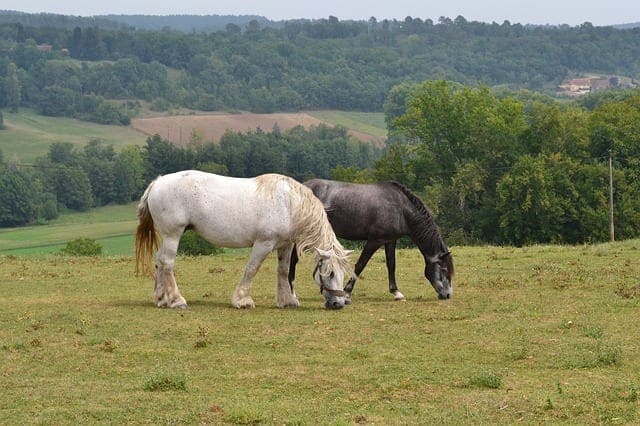
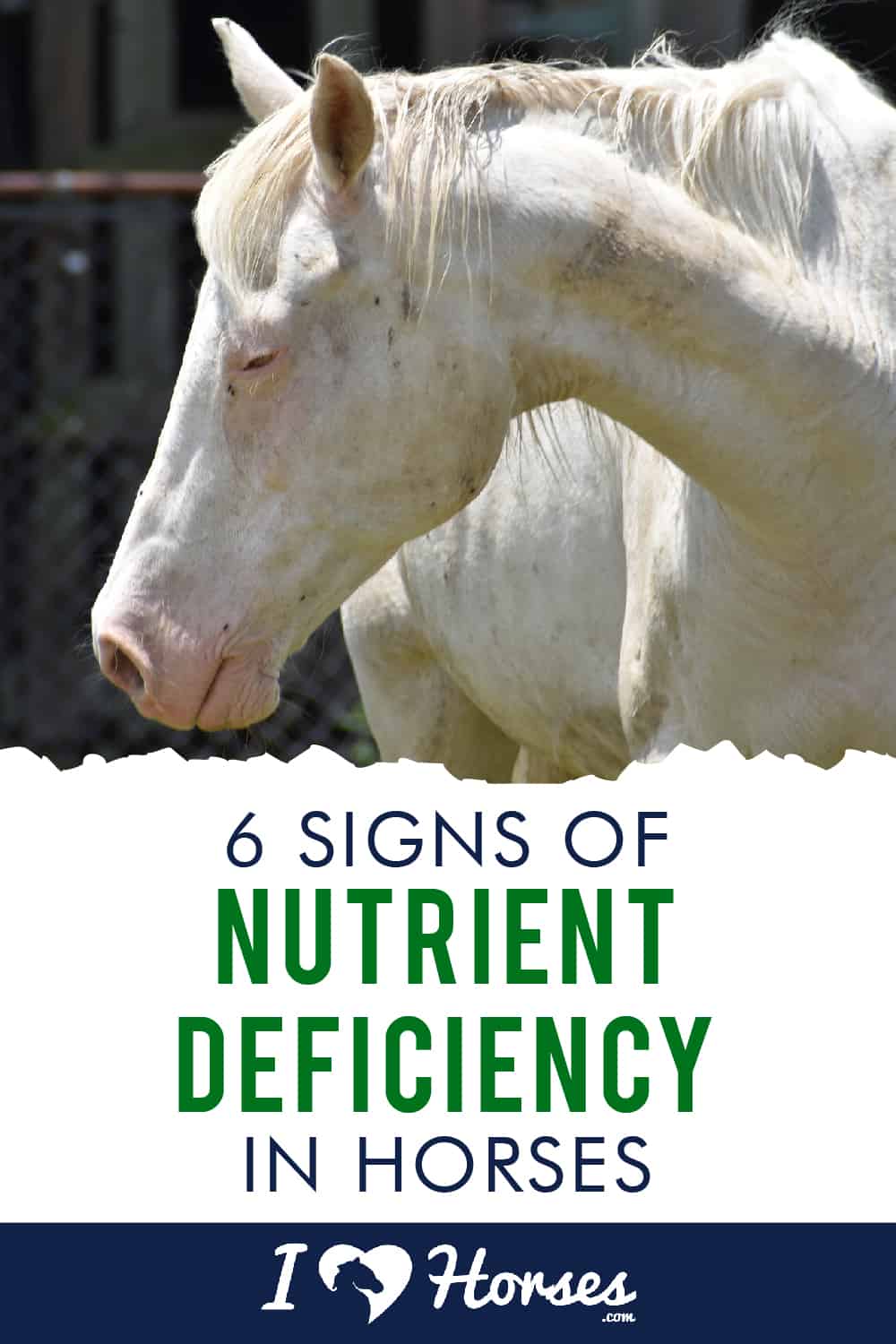
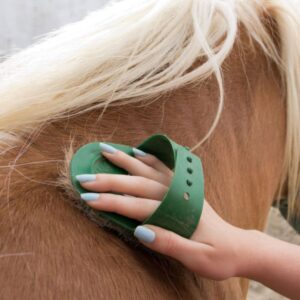
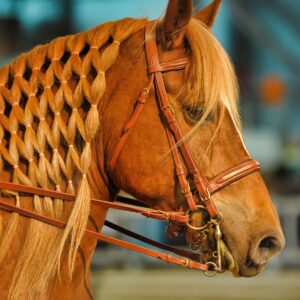
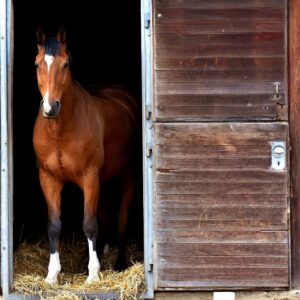
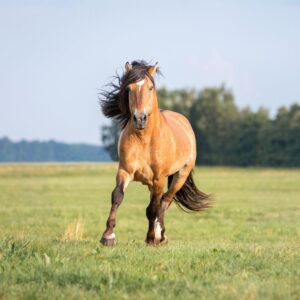
Kaz
seaweed meal excellent supply of iodine